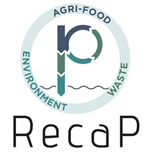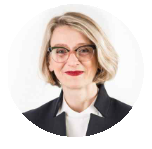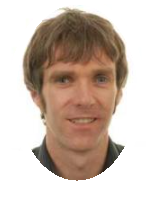Global Phosphorus Challenge II - Environment
An agenda for the training programme will be completed by the end of 2022. Tentative programme:
Sunday, 26 March - Wednesday, 29 March & Friday 31 March: Training programme and impact presentations (RecaP members only)
Thursday, 30 March: Delivering Societal Impact from Environmental Research (open to others, registration link)
A RecaP and water@leeds joint networking event
Thursday 30th of March 2023
This networking event represents an opportunity for academics at all levels to discuss most recent research on the global phosphorus challenge and reflect on what societal impact can be derived from such research from the perspective of multiple disciplines. Through a round table discussion with renowned phosphorous and environmental scholars and breakout discussions, we will explore the multidimensional environmental challenges revolving around phosphorus from different academic disciplines. This is a joint event organised by the RecaP project, and water@leeds, one of the largest interdisciplinary networks on water research.


9:30: Registration
10:00 – 10:15: Welcome and purpose of the day - Prof. Julia Martin-Ortega (University of Leeds)
10:15 – 10:45: Introduction to RecaP, achievements & future, Dr. Kasper Reitzel (University of Southern Denmark)
10:45 – 11:00: Aims and format of the day - Dr. Markus Fraundorfer (University of Leeds)
11:00 – 13:00: Roundtable Discussion: The Global Phosphorus Challenge: delivering societal impact from environmental research – Facilitated by Dr. Markus Fraundorfer. (Speaker information and biography below)
- Prof Alison Baker, Professor of Cell and Molecular Biology, University of Leeds (UoL)
- Dr Miller Alonso Camargo-Valero, Associate Professor of BioResource Systems (School of Civil Engineering, UoL)
- Prof Fiona Smith, Professor in International Economic Law (School of Law, UoL)
- Prof Marc Stutter, Senior Scientist in Environment and Biochemical Sciences (The James Hutton Institute)
- Prof Simon Poulton, Chair in Biogeochemistry and Earth History (School of Earth and Environment, UoL)
- Outi Grönfors, M. Sc., Principal Scientist for Water Treatment (Kemira)
13:15 – 14:15: Networking Lunch – opportunity for smaller discussions between panelists and audience
14:15 – 14:35: Concluding Remarks – Prof Steven Banwart, Chair in Integrated Soil/Agriculture/Water Research, Director of the Global Food and Environment Institute (University of Leeds)
14: 35 – 14:45: Closing – Prof Julia Martin-Ortega
 Alison Baker is Professor of Cell and Molecular Biology at the University of Leeds, Biological Sciences. In collaboration with the School of Civil Engineering in Leeds her team is exploring the use of aquatic photosynthetic organisms; duckweed and the model microalga Chlamydomonas reinhardtii in wastewater treatment. They have shown that P uptake and growth can be uncoupled in duck weed under temperate climate conditions. They are investigating metabolic manipulations that can enhance P uptake and accumulation in microalgae. Alison led the project Hy-PAlgae (2016-2020), which analysed the regulation of polyphosphate metabolism in Chlamydomonas and potential for exploitation as P phosphorus sink in nutrient recovery system.
Alison Baker is Professor of Cell and Molecular Biology at the University of Leeds, Biological Sciences. In collaboration with the School of Civil Engineering in Leeds her team is exploring the use of aquatic photosynthetic organisms; duckweed and the model microalga Chlamydomonas reinhardtii in wastewater treatment. They have shown that P uptake and growth can be uncoupled in duck weed under temperate climate conditions. They are investigating metabolic manipulations that can enhance P uptake and accumulation in microalgae. Alison led the project Hy-PAlgae (2016-2020), which analysed the regulation of polyphosphate metabolism in Chlamydomonas and potential for exploitation as P phosphorus sink in nutrient recovery system.
 Miller Alonso Camargo-Valero is Associate Professor of BioResource Systems at the University of Leeds, School of Civil Engineering. He is also a Visiting Professor at the Department of Chemical Engineering, Universidad Nacional de Colombia, Manizales (Colombia), and has active research activities with partners in Colombia, Uganda, Nepal, Senegal, Indonesia, India, Malaysia, Ethiopia, Australia and Indonesia. Miller Alonso’s current research interests are in the field of water and sanitation in developing countries and resource recovery from low-grade waste streams. That includes the following research areas: (a) natural wastewater treatment systems, (b) wastewater reuse in agriculture, (c) nutrient control and recovery from wastewater and excreta, (d) renewable energy generation and high-value chemical production from anaerobic digestion and fermentation of organic waste and (e) algal biomass cultivation. He has been involved in several research projects focusing on phosporus, such as RePhoKUs (the role of phosphorus in the resilience and sustainability of the UK food system) and, together with Prof Alison Baker, Hy-PAlgae (regulation of polyphosphate metabolism in Chlamydomonas and potential for exploitation as P phosphorus sink in nutrient recovery systems).
Miller Alonso Camargo-Valero is Associate Professor of BioResource Systems at the University of Leeds, School of Civil Engineering. He is also a Visiting Professor at the Department of Chemical Engineering, Universidad Nacional de Colombia, Manizales (Colombia), and has active research activities with partners in Colombia, Uganda, Nepal, Senegal, Indonesia, India, Malaysia, Ethiopia, Australia and Indonesia. Miller Alonso’s current research interests are in the field of water and sanitation in developing countries and resource recovery from low-grade waste streams. That includes the following research areas: (a) natural wastewater treatment systems, (b) wastewater reuse in agriculture, (c) nutrient control and recovery from wastewater and excreta, (d) renewable energy generation and high-value chemical production from anaerobic digestion and fermentation of organic waste and (e) algal biomass cultivation. He has been involved in several research projects focusing on phosporus, such as RePhoKUs (the role of phosphorus in the resilience and sustainability of the UK food system) and, together with Prof Alison Baker, Hy-PAlgae (regulation of polyphosphate metabolism in Chlamydomonas and potential for exploitation as P phosphorus sink in nutrient recovery systems).
 Fiona Smith is Professor of International Economic Law and N8 Chair in Agrifood Regulation at the University of Leeds, School of Law. She also acts as Specialist Advisor to the House of Commons International Trade Committee for its scrutiny of the UK’s post-Brexit trade agreements, and to the UK Department of International Trade’s Expert Stakeholder Group working on the UK trade policy position in the G7, G20, and the World Trade Organization (WTO). Among others, she also provided expert advice to the House of Lords EU Energy and Environment Sub-Committee for its Report on Brexit: Agriculture, the House of Commons’ International Trade, and Environment, Food and Rural Affairs Committees, the UK Trade and Agriculture Commission, and the Welsh National Assembly, External Affairs and Additional Legislation Committee, the European Commission, [DG DSANCO], Working Group on EU Food Safety in Nutrition in 2050. Her current research focuses on delivering sustainable trade policy in agrifood supply chains across the world. She is leading a multidisciplinary, N8 consortium funding bid for UKRI (UK Research and Innovation) on Sustainable Trade in Soya (SUSTSoy). She is also a member of a Horizon Europe Consortium focusing on transforming food systems (including food trade) between countries in Southeast Asia, Africa and the EU.
Fiona Smith is Professor of International Economic Law and N8 Chair in Agrifood Regulation at the University of Leeds, School of Law. She also acts as Specialist Advisor to the House of Commons International Trade Committee for its scrutiny of the UK’s post-Brexit trade agreements, and to the UK Department of International Trade’s Expert Stakeholder Group working on the UK trade policy position in the G7, G20, and the World Trade Organization (WTO). Among others, she also provided expert advice to the House of Lords EU Energy and Environment Sub-Committee for its Report on Brexit: Agriculture, the House of Commons’ International Trade, and Environment, Food and Rural Affairs Committees, the UK Trade and Agriculture Commission, and the Welsh National Assembly, External Affairs and Additional Legislation Committee, the European Commission, [DG DSANCO], Working Group on EU Food Safety in Nutrition in 2050. Her current research focuses on delivering sustainable trade policy in agrifood supply chains across the world. She is leading a multidisciplinary, N8 consortium funding bid for UKRI (UK Research and Innovation) on Sustainable Trade in Soya (SUSTSoy). She is also a member of a Horizon Europe Consortium focusing on transforming food systems (including food trade) between countries in Southeast Asia, Africa and the EU.
 Marc Stutter is Senior Scientist in Environment and Biochemical Sciences at The James Hutton Institute, Dundee. He is also the research theme leader of Managing Catchments and Coasts, and he leads the Scottish Government’s research theme on Safe and Sustainable Supply Chains for Water and Renewable Energy. Marc’s research aims to understand catchment biogeochemical processes affecting the interactions between landscapes, their management and the resulting impacts on water quality and quantity. His studies involve examining how biological, physical and chemical processes interact to determine the fate and impacts of nutrients and other potential pollutants, such as sediments and particulate bound contaminants. In his work on phosphorus resource use efficiency, he unites aspects of promoting efficient crop acquisition of applied P, minimising losses from the field edge and recovering beneficial resources, such as P, from materials previously viewed as ‘wastes’ (such as sewage or anaerobic digestate). In collaboration with the farming community, one of his projects looks at better management in matching agronomic inputs to crop requirements to minimise losses such as by soil P leaching (farmer led phosphorus sampling page).
Marc Stutter is Senior Scientist in Environment and Biochemical Sciences at The James Hutton Institute, Dundee. He is also the research theme leader of Managing Catchments and Coasts, and he leads the Scottish Government’s research theme on Safe and Sustainable Supply Chains for Water and Renewable Energy. Marc’s research aims to understand catchment biogeochemical processes affecting the interactions between landscapes, their management and the resulting impacts on water quality and quantity. His studies involve examining how biological, physical and chemical processes interact to determine the fate and impacts of nutrients and other potential pollutants, such as sediments and particulate bound contaminants. In his work on phosphorus resource use efficiency, he unites aspects of promoting efficient crop acquisition of applied P, minimising losses from the field edge and recovering beneficial resources, such as P, from materials previously viewed as ‘wastes’ (such as sewage or anaerobic digestate). In collaboration with the farming community, one of his projects looks at better management in matching agronomic inputs to crop requirements to minimise losses such as by soil P leaching (farmer led phosphorus sampling page).
 Simon Poulton is Chair in Biogeochemistry and Earth History at the University of Leeds, School of Earth and Environment. He is also a Distinguished Professor at the State Key Laboratory of Geological Processes and Mineral Resources, China University of Geosciences-Wuhan. And he was a visiting scholar at the Tokyo Institute of Technology, the University of Lorraine, the Department of Earth and Planetary Sciences at Harvard University, and the University of Southern Denmark. His research concentrates on the chemical evolution of the Earth's biosphere, modern redox sensitive environments, experimental reaction kinetics and mechanisms, and nutrient availability through time (e.g., P, N, Mo, Fe, Cu). In terms of nutrient availability, he is interested in evaluating the impact of changes in nutrient availability on biogeochemical cycles, ocean chemistry and oxygen production. One of his major research interests concerns examining links between atmospheric chemistry, climate change, ocean chemistry and biological evolution throughout Earth's history. His recent focus has been on periods of major transition in terms of the redox chemistry of the Precambrian Ocean and links to biological evolution and the evolution of biogeochemical cycles. He is also interested in developing and applying novel paleoredox indicators to understand controls on major periods of environmental change during the Phanerozoic.
Simon Poulton is Chair in Biogeochemistry and Earth History at the University of Leeds, School of Earth and Environment. He is also a Distinguished Professor at the State Key Laboratory of Geological Processes and Mineral Resources, China University of Geosciences-Wuhan. And he was a visiting scholar at the Tokyo Institute of Technology, the University of Lorraine, the Department of Earth and Planetary Sciences at Harvard University, and the University of Southern Denmark. His research concentrates on the chemical evolution of the Earth's biosphere, modern redox sensitive environments, experimental reaction kinetics and mechanisms, and nutrient availability through time (e.g., P, N, Mo, Fe, Cu). In terms of nutrient availability, he is interested in evaluating the impact of changes in nutrient availability on biogeochemical cycles, ocean chemistry and oxygen production. One of his major research interests concerns examining links between atmospheric chemistry, climate change, ocean chemistry and biological evolution throughout Earth's history. His recent focus has been on periods of major transition in terms of the redox chemistry of the Precambrian Ocean and links to biological evolution and the evolution of biogeochemical cycles. He is also interested in developing and applying novel paleoredox indicators to understand controls on major periods of environmental change during the Phanerozoic.
 Outi Grönfors is the Principal Scientist for Water Treatment at the global chemicals company Kemira (Helsinki). In her work, she addresses the challenge of microplastics by exploring how chemical coagulants can remove the tiny plastic particles from our water. “I find it really exciting to be part of the research world where we’re developing solutions for the environment and for cleaner, safer water,” explains Outi. “Pushing the boundaries of what we can do is really motivating – keeping drinking water safe with sustainable solutions will benefit the environment and every member of society. By making better choices as consumers, we can all help to reduce the amount of microplastics that end up in wastewater, but together with my research team I am determined to discover how chemicals can reduce microplastic pollution even further.”
Outi Grönfors is the Principal Scientist for Water Treatment at the global chemicals company Kemira (Helsinki). In her work, she addresses the challenge of microplastics by exploring how chemical coagulants can remove the tiny plastic particles from our water. “I find it really exciting to be part of the research world where we’re developing solutions for the environment and for cleaner, safer water,” explains Outi. “Pushing the boundaries of what we can do is really motivating – keeping drinking water safe with sustainable solutions will benefit the environment and every member of society. By making better choices as consumers, we can all help to reduce the amount of microplastics that end up in wastewater, but together with my research team I am determined to discover how chemicals can reduce microplastic pollution even further.”
Steven Banwart is University of Leeds Leadership Chair in in Integrated Soil / Agriculture / Water research and director of the University’s Global Food and Environment Institute. His research combines the study of soil and water resources and the Earth’s Critical Zone, the surface layer of the planet from bedrock to atmospheric boundary layer that provides most life-sustaining resources. He will offer the concluding remarks for the panel discussion.
